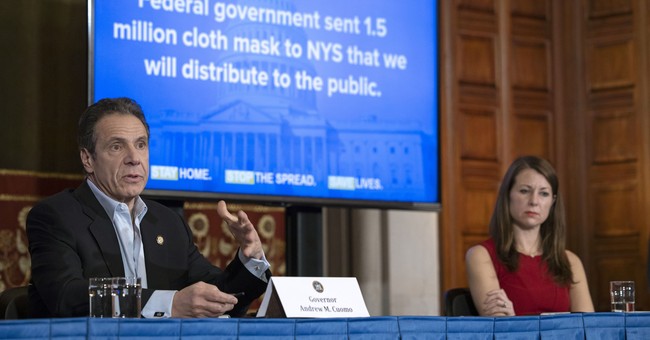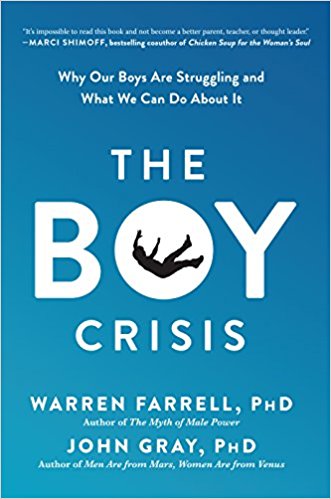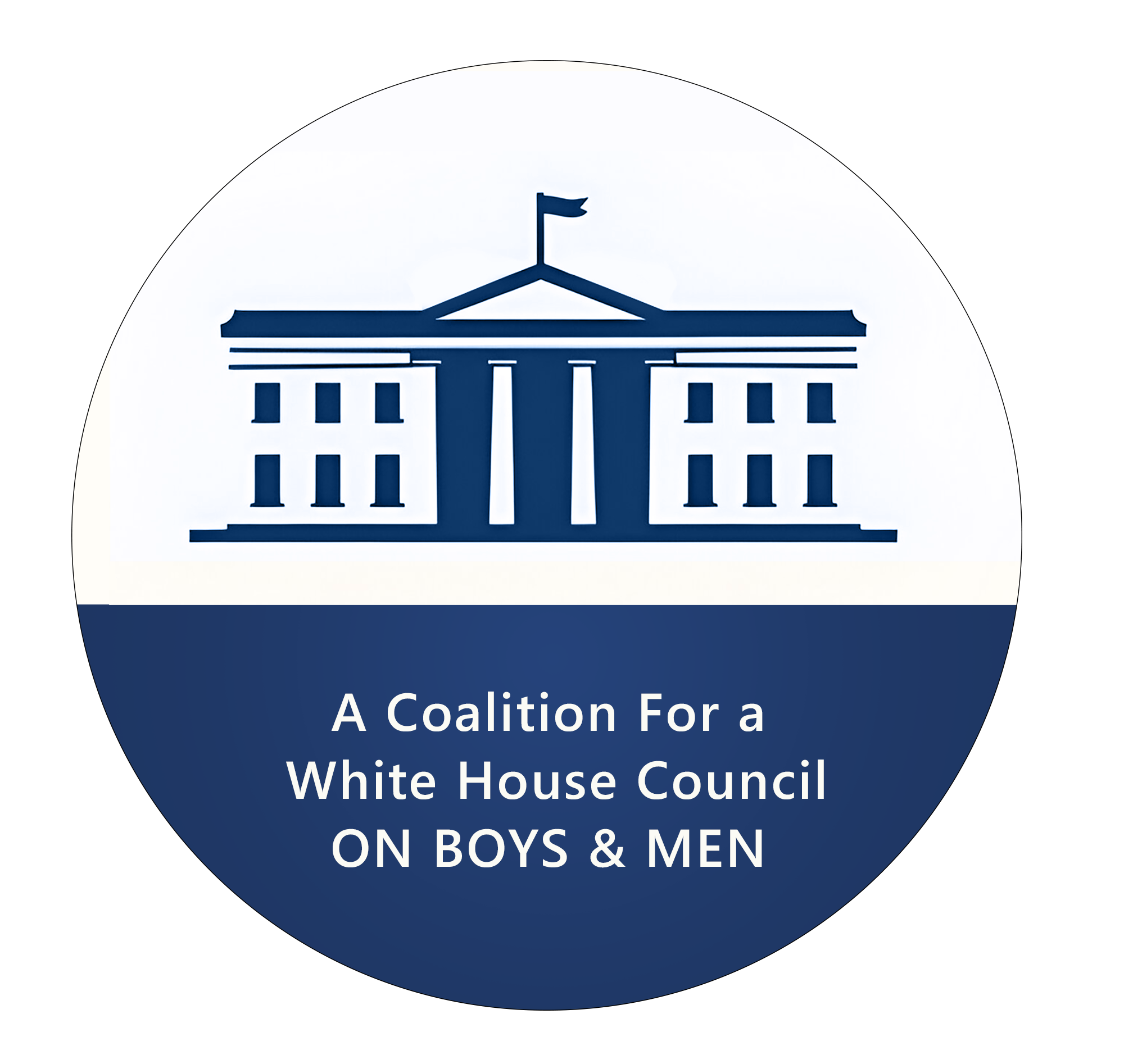
Before we Abolish Cuomo and Due Process, Turn #Metoo from a Monologue to a Dialogue
Townhall, OPINION - Dr. Warren Farrell - April 9, 2021
Before we turn Andrew Cuomo from a national hero into an international outcast, let’s use the crisis to create an opportunity; replacing a #metoo monologue with a #metoo dialogue.

#Metoo’s good news was that millions of women expressed feelings they had previously repressed. Heterosexual boys and men, who were biologically and socially programmed to protect women, increased their sensitivity to what had created trauma for their sisters, wives, daughters, mothers, and female friends. Many were appalled to hear how their sexual initiative-taking often felt oppressive to women and created traumas the women they loved had repressed. Virtually every heterosexual man sensed that he had been part of the problem in the past. Even men who said little were quietly introspective.
Now the bad news: #metoo is a monologue, and the solution is a #metoo dialogue.
The male-female dance is a delicate tango. And yes, it takes two to tango.
As a monologue, #metoo did not lead to women who believed in equality expecting each other to apply that equality to equally sharing the risks of sexual rejection. It left men alone as the ones risking sexual rejection, resulting in a courtship when the woman receives it well, or a law court when a woman receives it poorly.
Nor does #metoo fully empower females. It does not empower females to say what offends them at the time of the offending behavior.
Instead, #metoo allows the world to hear women’s feelings of powerlessness in the presence of men with corporate and political power. It does not allow the world to hear men’s feelings of powerlessness in the presence of women with youth, beauty, and sexual power.
#Metoo inspired women to tell their stories, but ruined men’s lives without hearing men’s stories. Our passion to protect women from Weinstein-type abusiveness led to tossing due process out the window, leading to protection for a woman accusing a man that far surpassed the protection due process ever allowed for a man accused by another man.
If boys and men were ever to feel safe to express their feelings without being shouted down, what might they say? Boys who are teenagers, and less mature than their female counterparts, often experience what might be called a #metoo Catch-22; they feel that if they initiate too quickly they might be labeled a sexual harasser, but if they initiate too slowly, they might be labeled a wimp.
All these emotions are at play even as the boy is feeling protective of the young woman he is afraid of. Because there is no #metoo for guys, few young men are able to articulate these conflicting feelings even to themselves. The result is that few boys feel that anyone has empathy for the trauma they experience as they risk sexual rejection.
A #metoo dialogue would give boys social support for expressing their feelings. This is in contrast with what boys learn makes them attractive to women; Lois Lane rejected the more sensitive Clark Kent until she discovered he was also Superman. Boys and men observe that successful men like Superman repress feelings; it is unsuccessful men who express feelings.
More importantly, a #metoo dialogue will ultimately make both sexes healthier and happier. When women complain about toxic masculinity and male privilege, boys and men just put their heads in the sand and hope the bullets will miss. Women feel their negative experiences with men are the full story, and their anger, disgust and contempt for men deepens. With boys and men saying little—and quickly shut down if they say anything— why should women feel they are missing anything? Women can’t hear what men don’t say. Cancel culture assures they won’t.
Maybe Cuomo’s transgressions are not the model New York desires. But perhaps we should use this period to allow for due process rather than immediate prosecution. We should allow for an evolutionary shift of #metoo from a monologue to a dialogue, teaching men and women to hear each other’s experience of powerlessness, replacing blame with compassion, and trauma with love.
Warren Farrell, Ph.D. is co-author of The Boy Crisis (with John Gray). The Financial Times chose him as one of the world’s top 100 thought leaders. He was on the Board of N.O.W. in NYC, and teaches couples’ communication courses at Esalen.
Contact
Contact WHCBM Steering Committee:
Coalition Chair: Dr. Warren Farrell - warren@warrenfarrell.com
Please Donate!
Your donations to the work of the Coalition to Create a White House Council on Boys and Men through PayPal and Network for Good are processed by our parent 501(c)(3) non-profit association, the Global Initiative for Boys and Men.
Paypal:
You can also become a Patron through Patreon.
Become a Patron!
Sign up for our newsletter, The Proposal.

A silent crisis in men’s health gets worse
Across the life span -- from infancy to the teen years, midlife and old age -- boys and men are more likely to die than girls and women
The Washington Post, April 17, 2023
A silent crisis in men’s health is shortening the life spans of fathers, husbands, brothers and sons.
For years, the conventional wisdom has been that a lack of sex-specific health research mainly hurts women and gender minorities. While those concerns are real, a closer look at longevity data tells a more complicated story.
Across the life span — from infancy to the teen years, midlife and old age — the risk of death at every age is higher for boys and men than for girls and women.
The result is a growing longevity gap between men and women. In the United States, life expectancy in 2021 was 79.1 years for women and 73.2 years for men. That 5.9-year difference is the largest gap in a quarter-century. (The data aren’t parsed to include differences among nonbinary and trans people.)
The longevity gap between men and women is a global phenomenon, although sex differences and data on the ages of greatest risk vary around the world and are influenced by cultural norms, record keeping and geopolitical factors such as war, climate change and poverty.
The Boy Crisis: Why Our Boys Are Struggling and What We Can Do About It.


WHAT IS THE BOY CRISIS?
It’s a crisis of education. Worldwide, boys are 50 percent less likely than girls to meet basic proficiency in reading, math, and science.
It’s a crisis of mental health. ADHD is on the rise. And as boys become young men, their suicide rates go from equal to girls to six times that of young women.
It’s a crisis of fathering. Boys are growing up with less-involved fathers and are more likely to drop out of school, drink, do drugs, become delinquent, and end up in prison.
It’s a crisis of purpose. Boys’ old sense of purpose—being a warrior, a leader, or a sole breadwinner—is fading. Many bright boys are experiencing a “purpose void,” feeling alienated, withdrawn, and addicted to immediate gratification.
So, what is The Boy Crisis? A comprehensive blueprint for what parents, teachers, and policymakers can do to help our sons become happier, healthier men and fathers and leaders worthy of our respect.

